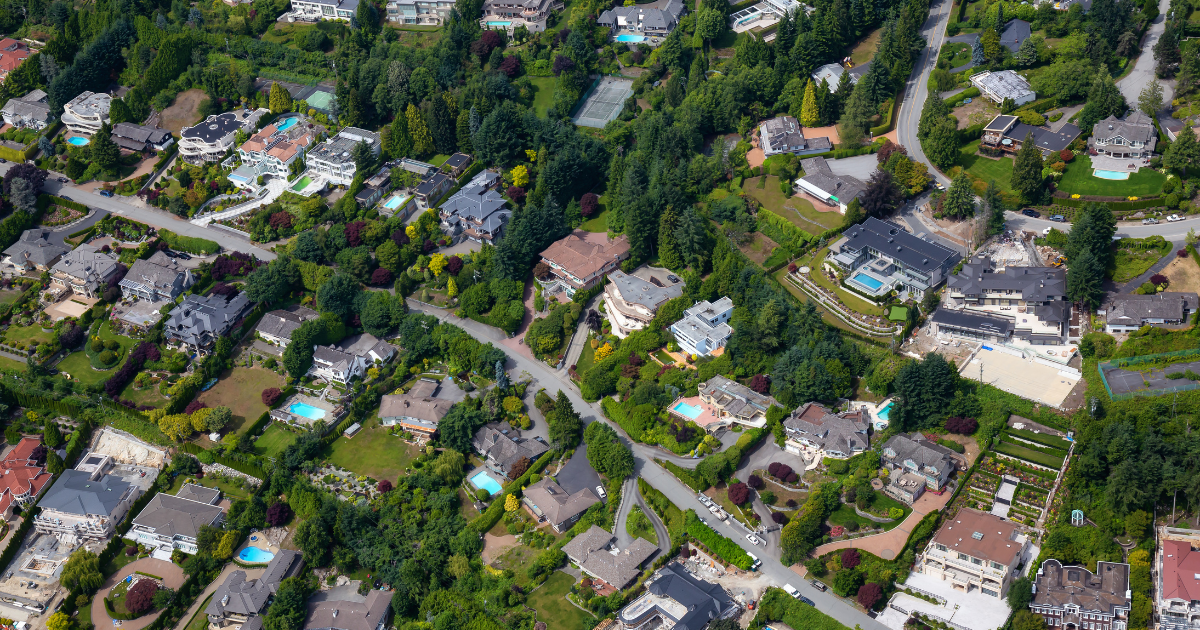Port of Vancouver (Canva)
The Greater Vancouver Board of Trade (GVBOT) has thrown down the gauntlet: it wants the B.C. government to pursue an ambitious 3 per cent annual GDP growth target over the next five years.
Unveiled on Jan. 30, the initiative—dubbed the “3% Challenge: Agenda for Economic Growth”—comes as B.C. faces economic uncertainty, from U.S. tariff threats under President Donald Trump to growing concerns over affordability.
The GVBOT’s call to action follows a survey of Metro Vancouver residents and businesses, revealing that 75 per cent see the province as lacking a cohesive economic strategy, while 80 per cent of residents and 92 per cent of businesses believe affordability has worsened in the past four years.
“The threat of U.S. tariffs should serve as a catalyst for action in B.C. To build a future worthy of our aspirations and one we can be proud to pass on to the next generation, British Columbia must pursue policies that will boost our economic growth and raise our collective standard of living,” Bridgitte Anderson, president and CEO of the GVBOT, tells REM.
The stakes are high: the GVBOT projects that meeting this target could generate $4-billion in additional revenue, create tens of thousands of jobs, and improve affordability across the province.
But what does this mean for B.C.’s real estate market? Could this ambitious economic push fuel growth—or drive prices even higher?
A boost of additional demand, but with a potential cost
Anderson explains that in order to reach this GDP target, “…we will need a robust and healthy real estate sector,” adding that, “If we can achieve better growth, the real estate sector will see a boost as higher incomes and more jobs will create additional demand.”
According to the GVBOT’s agenda, a 3 per cent GDP increase for the next five years would result in a jump in per capita GDP—approximately $9,000 more per person. And a higher quality of life translates to more action in the real estate market.
“If you have a 3 per cent GDP growth, (it will) certainly be good for the economy. And obviously…would be beneficial for… the rental market, sort of stabilizing that asset class,” says Steve Saretsky, a Vancouver Realtor with Oakwyn Realty.
Brendon Ogmundson, chief economist with the B.C. Real Estate Association views the question of what the agenda could do to the market as a “multi-layered hypothetical” but agrees that demand would see a lift.
“It’s interesting because there is the obvious demand side. You know, you have higher incomes, you can more easily afford homes. But that also means people…the more income they get, tend to buy more housing, the way it works in BC,” he states.
The other side of that proverbial demand coin, at least in richer provinces, is this idea of elasticity, the economist explains. In a nutshell, it’s this idea that as residents’ income growth increases, the cost of home prices increase as well because of higher demand. Ogmundson cites research from Canada Mortgage and Housing Corporation (CMHC) that shows for every 1 per cent increase in income of residents, house prices spike by 3 per cent in British Columbia specifically. This could be a double-edged sword for the GDP agenda.
“So the really important thing in this context is if you’re going to increase growth, or…if incomes are going to be rising in order to sort of staunch the potential impact on prices, this needs to be done in an environment of much higher housing supply,” Ogmundson explains, adding that “…it could just mean you get higher prices unless we have a lot more housing supply available for all those incomes to buy.”
Investors might come back ‘into the pool’
When times are good, investors notice Saretsky notes. This is especially true when it comes to putting their money on the line for pre-sales when they might not see completion of a project for a number of years.
“You have to be fairly optimistic about the future of the economy of the province, right? So, I mean…if you’re having 3 per cent GDP growth, people are gonna feel pretty good. So that would certainly… bring a lot of investors back into the pool,” he says.
That said, Saretsky and Ogmundson both note that investors are facing headwinds from multiple directions that give them a “gloomy” outlook. Saretsky has seen the threat of tariffs and a provincial government “that’s not necessarily pro-growth” pull back investors’ dollars from the market.
Ogmundson has seen much of the same, also noting the “demonizing the financialization of real estate (investing)” in the political conversation, which only adds to the dreary outlook.
“So something has to change if we want to hit the housing targets that we have, we need to have a focus on bringing investors in…” he says.
What are the chances elected officials support the agenda?
In many ways, the GVBOT’s agenda rests in the hands of elected officials across the province. If they don’t act to support the board’s goals, then the target won’t be reached. But what are the chances that elected officials jump on board?
Admittedly it’s too soon to tell. But Ogmundson thinks that while arguments can be made against increasing economic growth for just one section of B.C. earners, it’s hard to argue against broad-based growth in general.
“But, you know, growth in general is—as long as it’s kind of broad-based and creating a lot of opportunities for everybody—it’s kind of hard to argue against.”

Brett Surbey is a corporate paralegal and freelance writer who has written for Yahoo Finance Canada, Success Magazine, Publishers Weekly, U.S. News & World Report, Forbes Advisor and multiple academic journals. He and his family live in northern Alberta, Canada.













